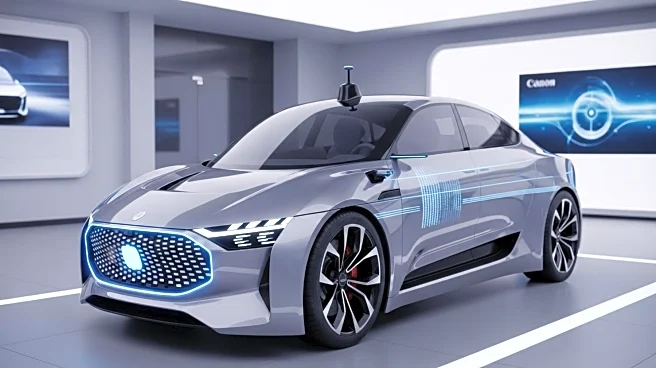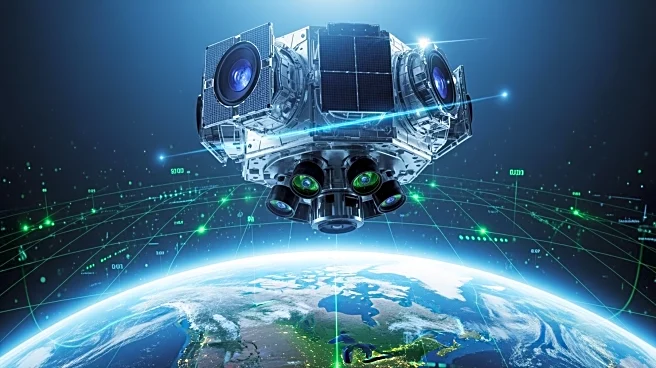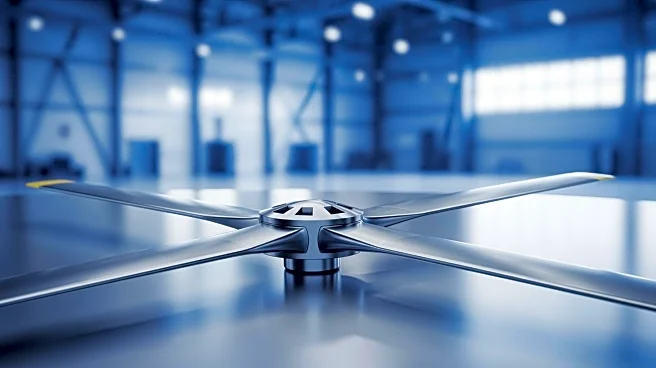What's Happening?
Nissan is developing self-driving technology as part of its efforts to revitalize its struggling auto business. The company demonstrated its technology with a Nissan Ariya sedan equipped with cameras, radars, and LiDAR, navigating through Tokyo. The self-driving car market is projected to reach $2 trillion by 2030, driven by advances in AI and sensor technologies. Nissan's push comes amid challenges in the Japanese auto market, exacerbated by President Trump's tariffs. The company has appointed a new CEO, Ivan Espinosa, to lead its turnaround efforts.
Why It's Important?
Nissan's focus on self-driving technology is crucial as it seeks to regain its competitive edge in the automotive industry. The development of autonomous vehicles could provide a significant boost to Nissan's market position, especially as the self-driving car market expands. However, the company faces challenges due to tariffs and market conditions, making its technological advancements even more critical. Success in self-driving technology could help Nissan overcome its current struggles and position itself as a leader in the autonomous vehicle sector.
What's Next?
Nissan plans to make its self-driving technology available by 2027, although specific models have not been disclosed. The company will need to navigate the competitive landscape, which includes other automakers and tech companies working on autonomous driving. Nissan's ability to innovate and adapt to market conditions will be key to its success. The appointment of Ivan Espinosa as CEO indicates a strategic focus on turning around the company's fortunes.








